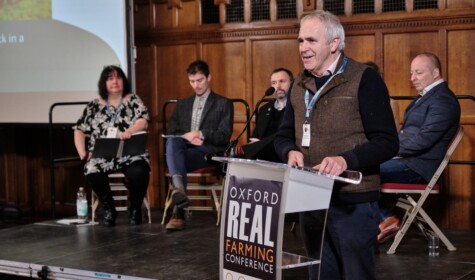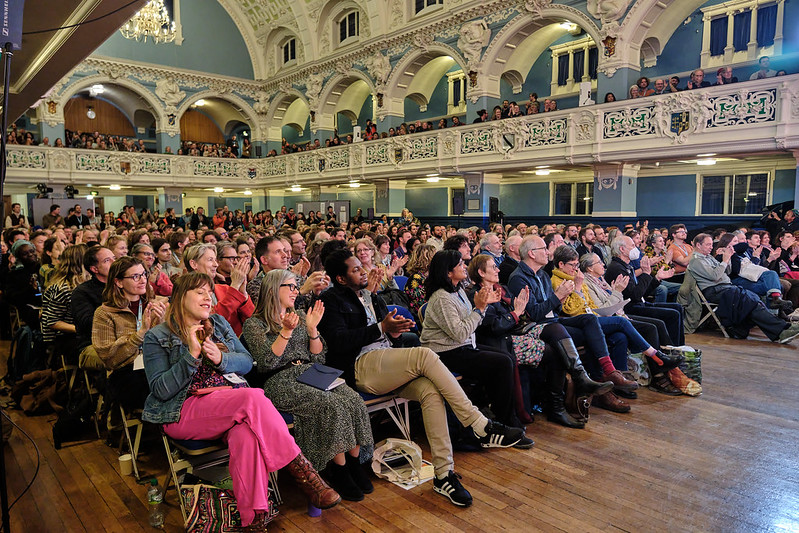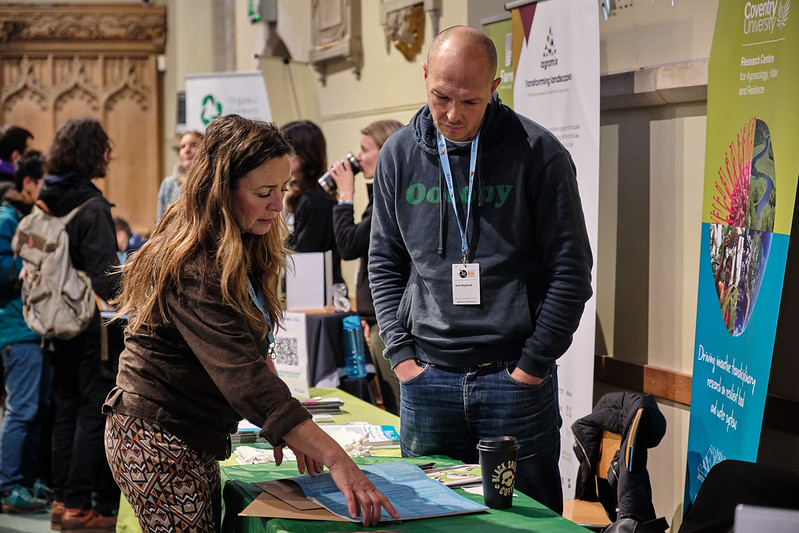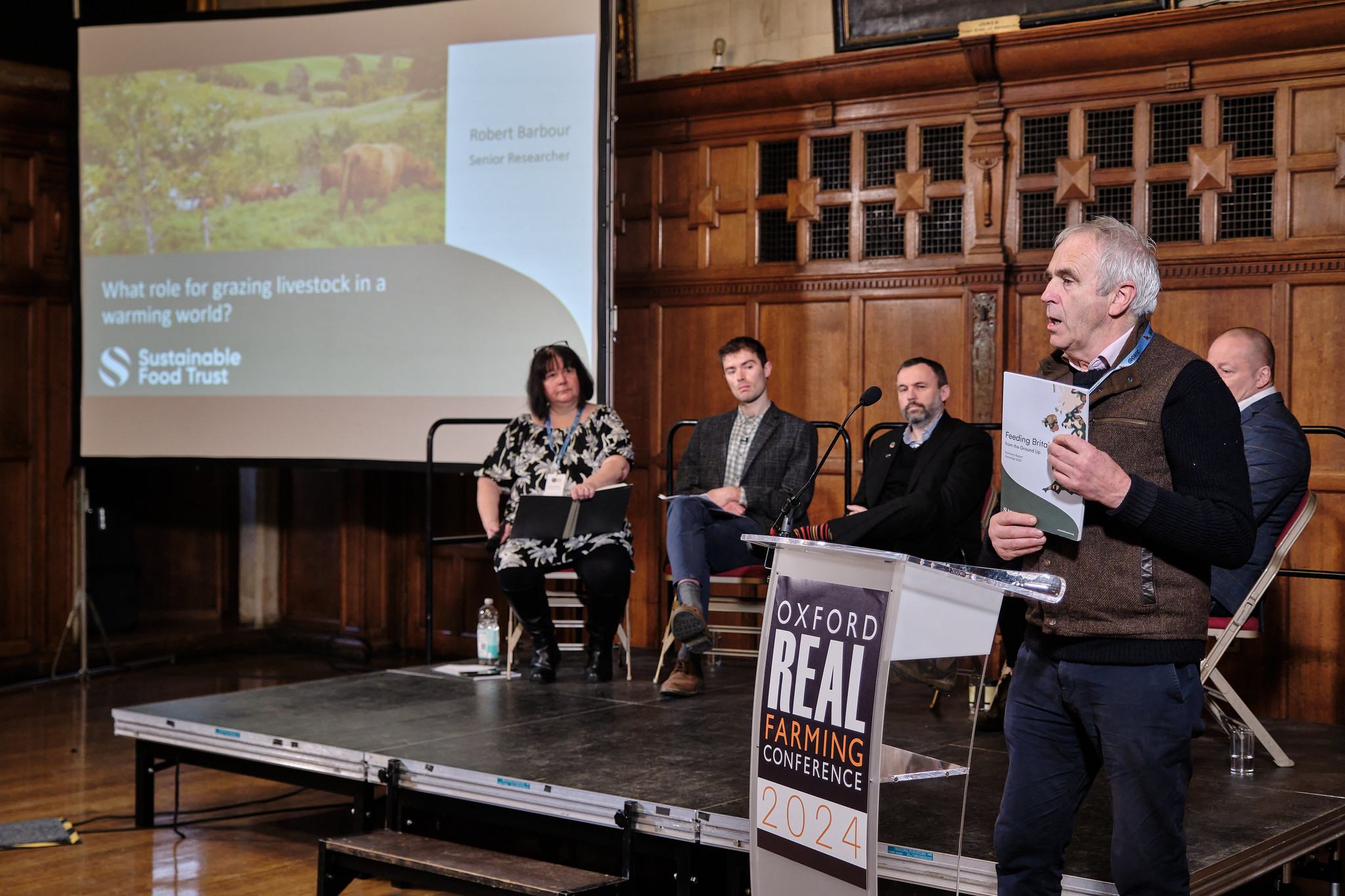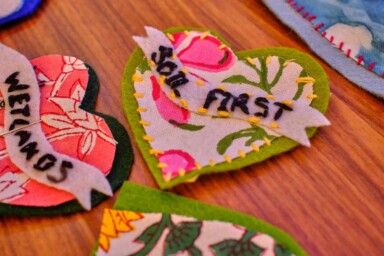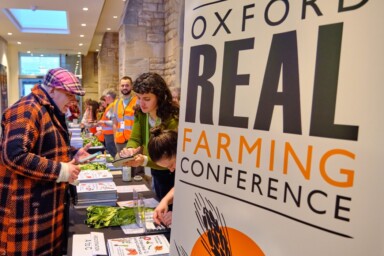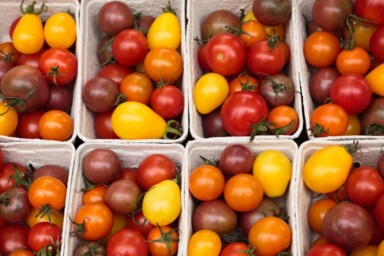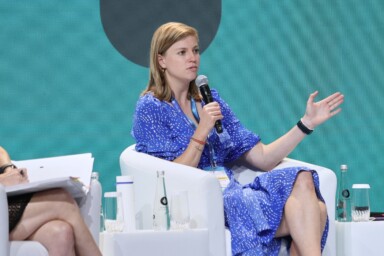SFT CEO, Patrick Holden, highlights our Feeding Britain report during our session ‘What role for grazing livestock in a warming world?’
Michael Lee discussed the role of methane and differences between biogenic methane and methane that is generated by fossil fuels. His detailed discussion on methane was not for the faint of heart – its role is complicated and needs to be considered in relation to “a whole load of other gases in the atmosphere which interact”. Methane’s natural cycle has been broken and the impact of that needs to be seriously considered.
There was an array of interesting panels across the conference on wool, fibre and clothing, that spoke to a growing interest in innovation and restoration of what to wear. Fashion isn’t something that you would expect at the ORFC, but arguably, it should really garner the same attention as food and farming given its impact on people and planet. Its importance was evidenced by a panellist that was moved as she explained the mammoth task of transforming fast fashion into slow fashion. The rise of second-hand fashion apps like Vinted and Depop that are popular among a generation of young people who now have a concern for sustainability built into their DNA is significant. They are rejecting power houses like Shein, PrettyLittleThing and BooHoo and questioning the quality and ethics of the clothes that fast fashion produces.
Alongside this discussion were several sessions on fibre and wool which are both eliciting interest. Again, this loops back into concern around the sustainability of where our clothing comes from and what its environmental impact is on a global basis.
Saving the best for last, was Satish Kumar’s session on soil, soul and society. Kumar calls for “a new trinity for an age of ecology which has wholeness, integrity and cohesion”. His delightful presence, at once funny, wise and deeply kind, reminded everyone of the importance of soil and of life: “The word human comes from humus – we are soil beings.”
You can watch a full recording of the SFT’s session on grazing livestock here and read more about the local abattoirs session here. You can also listen to a podcast recording from this year’s event featuring a conversation between SFT CEO, Patrick Holden, and Ian Wilkinson who is co-founder of FarmEd and Managing Director of Cotswold Seeds.
All featured images courtesy of Hugh Warwick.
